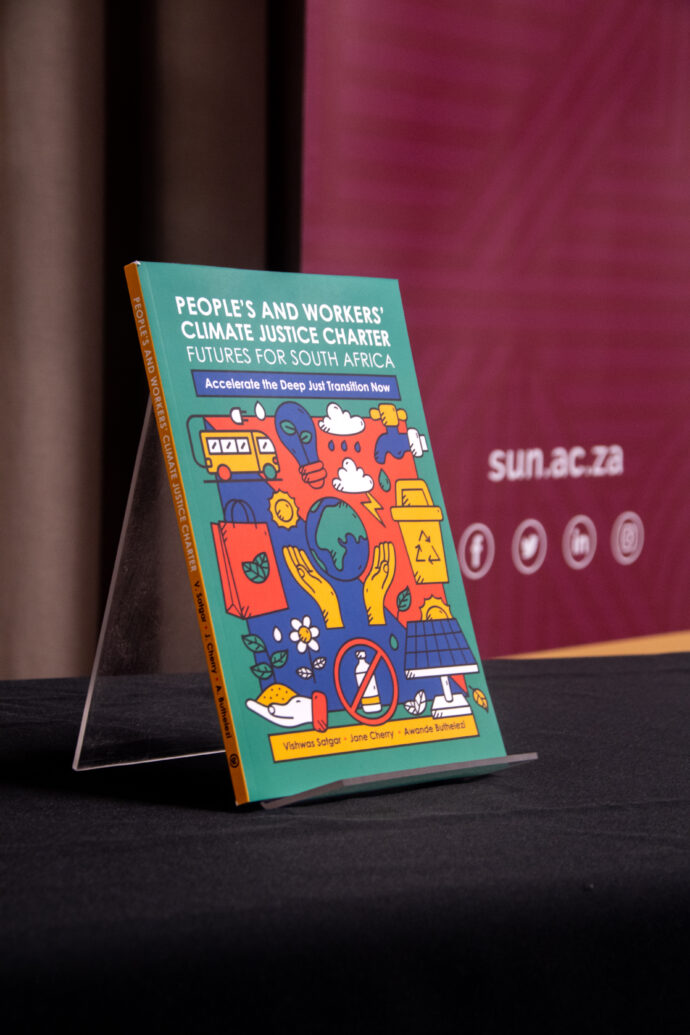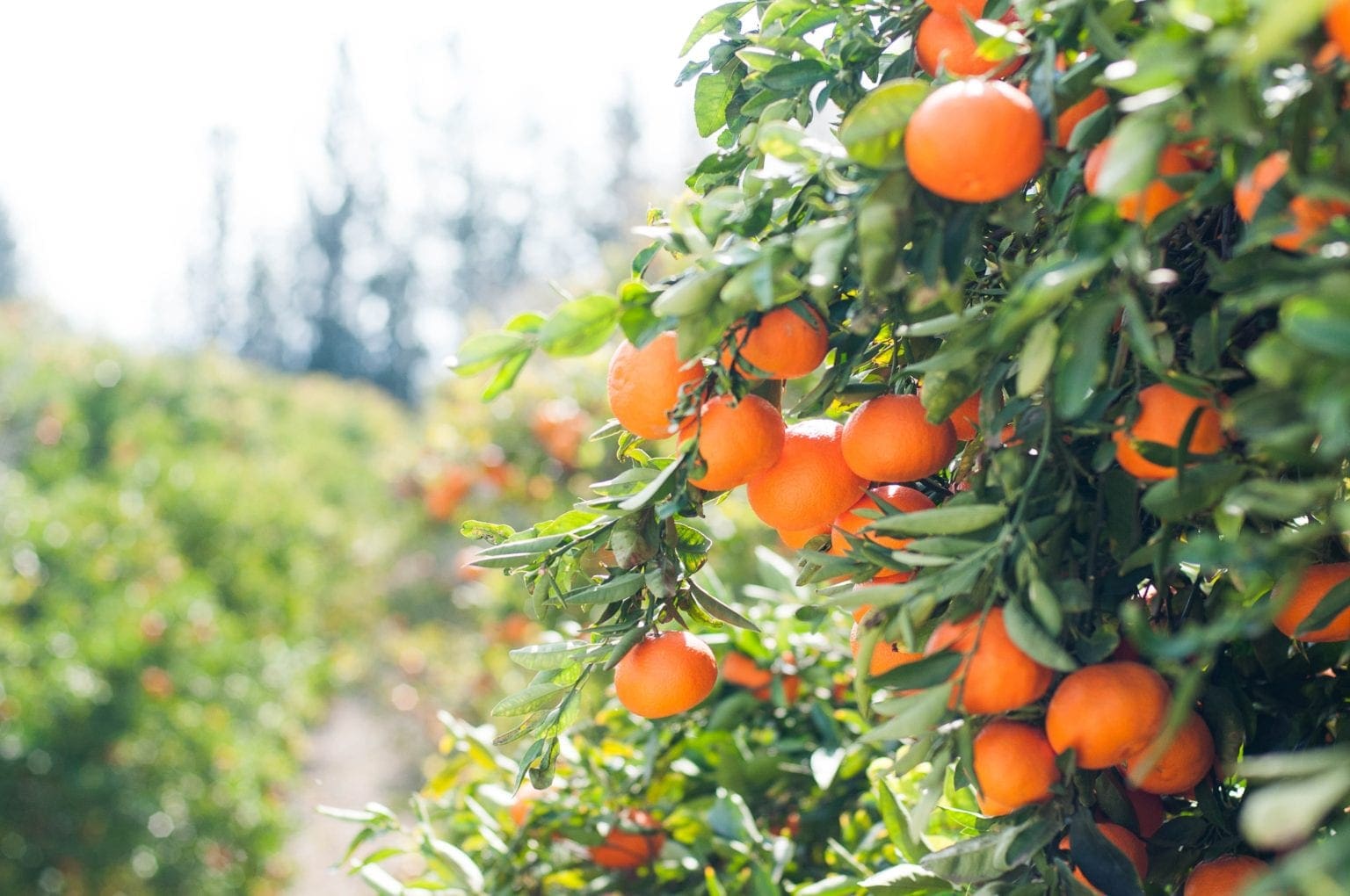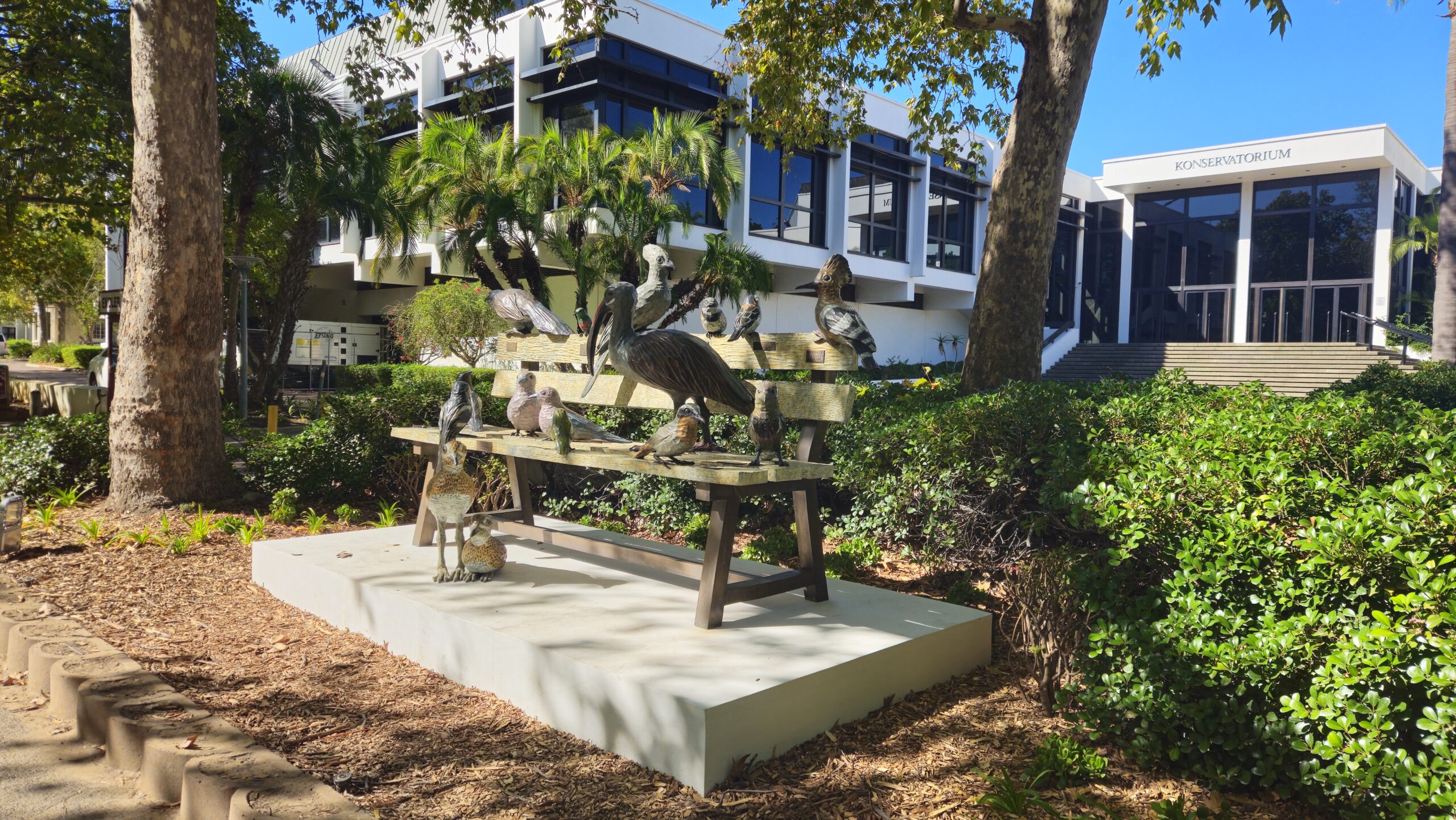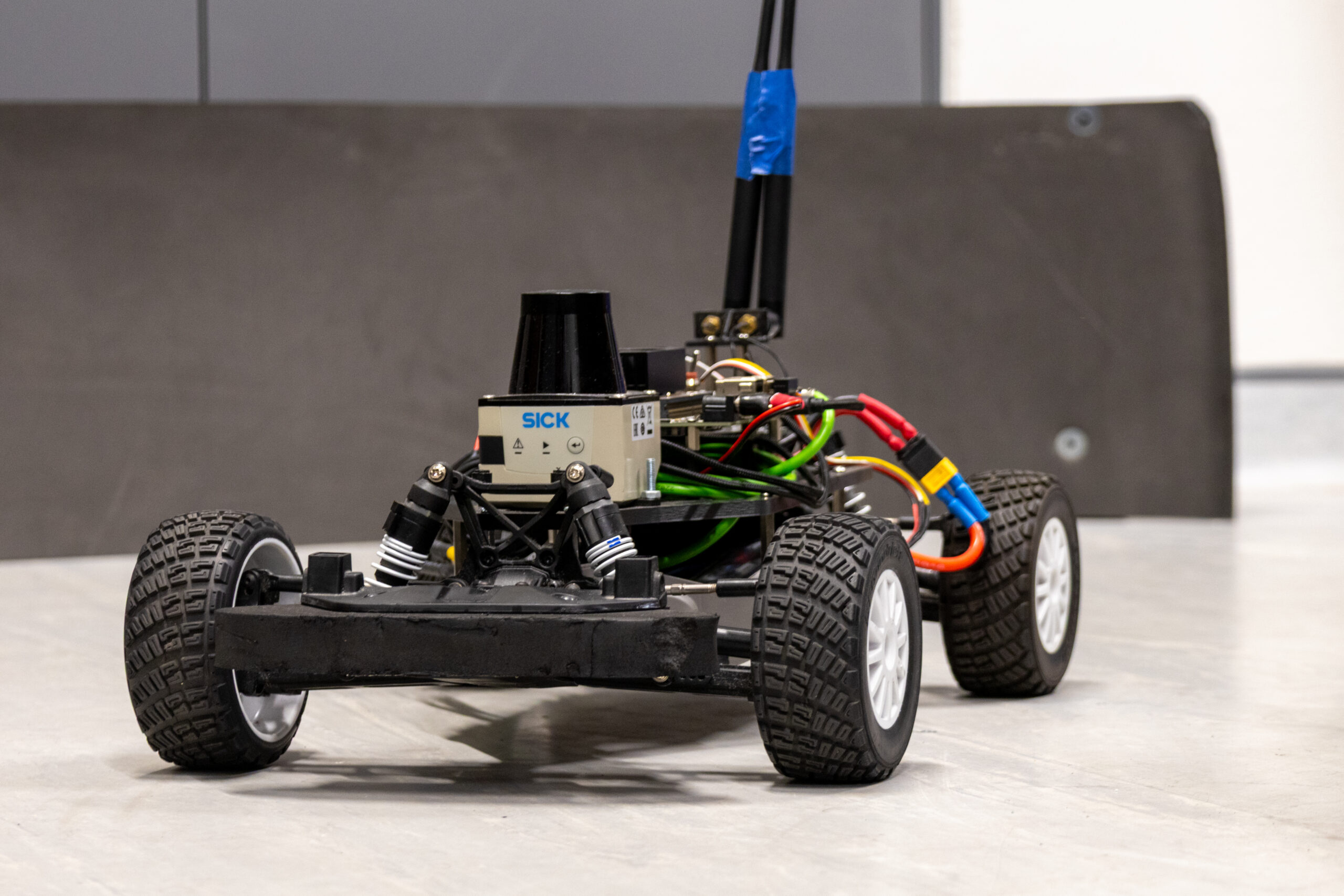People’s and Workers’ Climate Justice Charter: Futures for South Africa book launch
by Skyla Thornton & Lienke Norval

It is the hot topic of current world affairs: Climate change is happening now, and it is worse than we ever could have imagined. The science behind it is irrefutable, and it is now widely known that the worst effects of climate collapse will be felt by the most vulnerable communities, who did almost nothing to contribute to climate change itself.
Luckily, there are groups of people who are working tirelessly to re-imagine and create a future for South Africa. One of these groups is The Climate Justice Charter Movement, who launched a book titled People’s and Workers’ Climate Justice Charter: Futures for South Africa.
The book launch event was held at Heemstede Residence on 26 July, in collaboration with Stellenbosch University (SU) students, SDG/2063 Impact Hub, Social Impact and Facilities Management. In the panel discussion, Dr Matthew Wingfield posed many thought-provoking questions to Professor Vishwas Satgar, co-founder of the Climate Justice Charter Movement, Kayleigh Murray, a Master’s student studying the impact of climate change on quiver tree populations, and Aphiwe Sithole, SRC Sustainability and Social Impact at SU.
Professor Guy Midgely, director of the School for Climate Studies, opened the event with a speech and commented that the book is “challenging and confrontational,” adding, “What’s amazing is [the Climate Justice Charter] really reflects the needs of younger generations versus the vested interests of elders.”
The situation of the climate crisis has evolved rapidly within a short period of time, explains Professor Midgely. As “the tragic impacts of climate change are now finally being felt in the Northern hemisphere. Surprise, surprise, we’re finally starting to see some action.”
Professor Satgar, co-editor of the book, sounds a call to “accelerate the deep just transition,” saying that it is time for South Africans to “own and lead this problem.” He explained that the Climate Justice Charter was born out of the longest and worst drought period in South Africa’s history, written by a multitude of grassroots communities, labour, the media, climate scientists and activists, and is in many ways a document and movement worth supporting.
The book that was launched, People’s and Workers’ Climate Justice Charter: Futures for South Africa, is a collaboration with Daily Maverick’s ‘Our Burning Planet,’ as most of the individual chapters were originally published as articles. The book has three themes titled Perspectives, Struggles and Systemic Alternatives. Professor Satgar has done great work for students during his time at The University of the Witwatersrand (Wits), including creating food gardens that feed over 2000 students every day. In his advice to SU students, he advocates for the Climate Justice Charter Movement to be used as a platform for students to “aggregate your power and organise.”
Most of humanity may sometimes feel as though the idea of climate change has become a looming, inevitable threat, and that we have no real power to stop it. According to the panellists, it is of cardinal importance that we implement interdisciplinary, more widely accessible courses that educate students on the real-time impacts of climate change and global warming.
“We are all in the dark about what we are supposed to do. What’s the plan? What are we looking at? Because when you say ‘climate change’ it’s this massive blanket statement that casts a shadow over our futures,” saysMurray.
Sithole espouses that a dissonance exists between SU students regarding the level of education about climate change. While student-based societies such as UNASA and EcoMaties are involved in a great deal of climate activism and conservational efforts, many SU students remain insufficiently educated on the current state of environmental affairs.
“How can I apply what I am learning and what I am training in to address climate change across all of the different disciplines that it is going to impact?” is the question Murray posed during the session.
The book launch held an opportunity for staff, students and academics to convene in an informal setting as wine and snacks were served after the panel discussion. The launch buzzed with conversation tackling the issues faced by students who are experiencing the grim reality of a future nearly damned by climate change. Student representatives from UNASA and EcoMaties were also present, as the current platforms for environmental action for students.
“Stellenbosch is sort of heading in the right direction with the help of student societies such as EcoMaties and UNASA, but as a whole there is a lot of work to do, even within our space of the SRC,” says Sithole.
The book launch was well attended and engaged many students showing an interest in what is happening and where to look for those fighting for a future worth living in. More events and discussions are said to take place with the various stakeholders within the coming months, and climate justice is assured to become as conversational as climate change.



